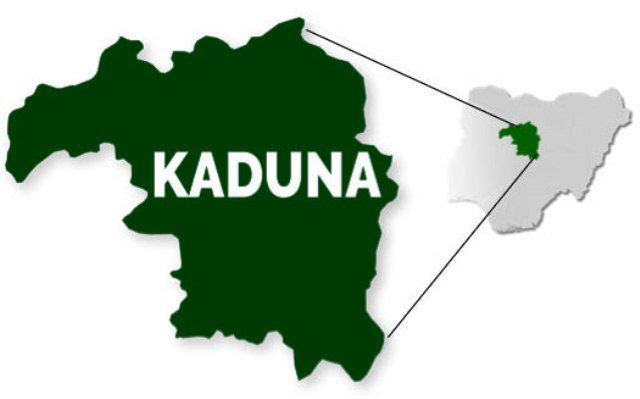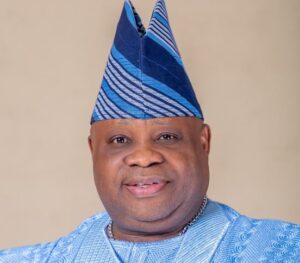
Political drama in Kaduna: Between allegations, power struggles, birthday felicitations
By Austine Agbo Emmanuel, Kaduna
The unfolding political drama in Kaduna State has taken another twist, following the revisiting of the recommendation by Kaduna State House of Assembly last year that indicted former Governor Nasir El-Rufai over alleged mismanagement of N423 billion.
The indictment, followed by calls from some groups for his arrest, has further deepened the rift between El-Rufai and his successor, Governor Uba Sani.
However, amidst the political turbulence, President Bola Ahmed Tinubu and Uba Sani extended warm birthday wishes to the embattled former governor as he turned 65.
The Kaduna State House of Assembly’s ad-hoc committee released a damning report accusing El-Rufai’s administration of financial recklessness, particularly in the handling of loans and contracts.
The report recommended that security and anti-corruption agencies investigate and prosecute those implicated. This development has sparked controversy, with El-Rufai’s allies dismissing the allegations as politically motivated.
El-Rufai, known for his no-nonsense leadership style, has fought back, challenging the legal basis of the Assembly’s recommendations and accusing the state government of orchestrating a witch-hunt.
His former officials argue that many of the loans cited in the report were secured after his tenure and that his administration left a lasting infrastructural and economic legacy.
The growing discord between El-Rufai and Governor Uba Sani underscores the classic power struggle that often occurs between a political godfather and his successor.
Governance commentator Yusuf Goje of Partnership to Engage, Reform, and Learn (PERL) likened the feud to a natural craving for independence by a new leader who seeks to establish his own legacy, often at odds with the influence of his predecessor.
Before the 2023 elections, El-Rufai and Uba Sani presented a united front, with the latter vigorously defending the policies of the former governor. However, since assuming office, Uba Sani appears to have shifted his stance, raising concerns about some of the policies he once defended.
This shift has fueled speculation that he is attempting to distance himself from his predecessor to solidify his own political standing ahead of the 2027 elections.
The fallout is not just a state-level affair. El-Rufai’s growing differences with the presidency and APC leadership have further complicated matters. His unsuccessful ministerial nomination and open criticism of President Tinubu’s administration suggest that the battle lines extend beyond Kaduna State politics.
Recently, El-Rufai has been vocal about his dissatisfaction with the APC government, accusing it of economic mismanagement and deviation from the party’s promises. His comments, particularly on the economic hardship faced by Nigerians under Tinubu’s leadership, have fueled speculations about his potential defection or realignment with opposition forces.
His attacks on Tinubu’s policies, including the removal of fuel subsidies without adequate economic cushioning and the handling of national security, have not gone unnoticed. Many within the APC see his criticisms as a calculated move to position himself for a major political comeback, possibly in the 2027 elections.
These tensions further complicate the ongoing Kaduna crisis, as the state-level conflict is now intertwined with national political dynamics.
Despite the raging political storm, both President Tinubu and Governor Uba Sani publicly congratulated El-Rufai on his 65th birthday.
Tinubu, in a statement signed by his Special Adviser on Information and Strategy, Bayo Onanuga, described El-Rufai as a “brilliant administrator, scholar, and politician.”
He acknowledged El-Rufai’s pivotal role in the formation of the APC and his contributions to Nigeria’s democratic process.
Also, Governor Uba Sani, while embroiled in a political face-off with El-Rufai, also commended his predecessor’s contributions to Kaduna State. He praised El-Rufai’s infrastructural transformation and governance efforts, signaling that, despite their political disagreements, he still recognizes the achievements of the previous administration.
The Kaduna political conflict mirrors similar tensions in other states where former governors and their successors have clashed over governance style and control of political structures. This pattern reflects the broader issue of succession politics in Nigeria, where political godfathers often struggle to maintain influence after leaving office.
Civil society organisations have warned that the ongoing power struggle could lead to a governance crisis, where political actors prioritize personal ambitions over service delivery.
While reconciliation remains a possibility in politics, the trajectory of the El-Rufai-Uba Sani fallout suggests that the battle is far from over.
The alignment and realignments ahead of the 2027 elections will determine whether these political rivals will remain adversaries or find common ground in the future.
Until then, Kaduna’s political landscape will remain a battleground of influence, ambition, and shifting loyalties.




